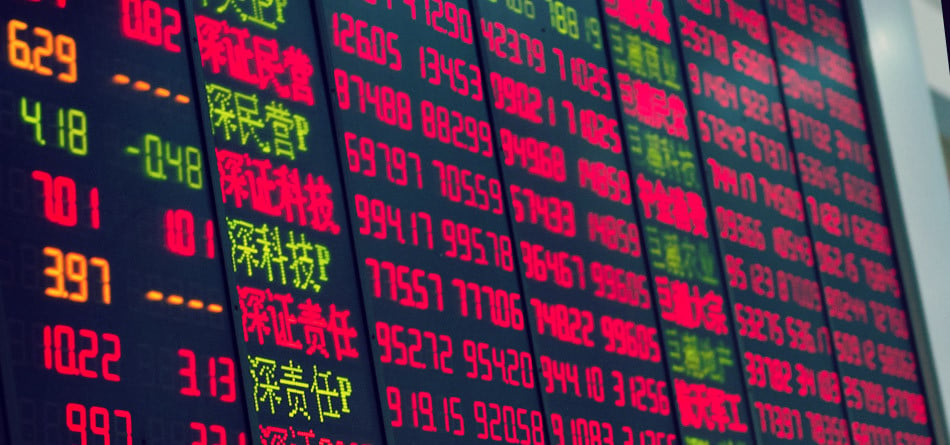The whole of Asia represents a significant opportunity as increasing investment flows are expected into the region and China has been included in the benchmark emerging markets index according to Tony Amicangioli, chief executive of trading infrastructure technologies provider Hyannis Port Research.
At the start of this month index provider MSCI incorporated 226 A-shares, which are traded on the Shanghai and Shenzhen stock exchanges in renminbi, into its mainstream emerging markets and world indices after four years of consultation. This is the first step in a process towards including 5% of eligible A-shares by September.
 Anthony Amicangioli,
Anthony Amicangioli,
Hyannis Port Research
Amicangioli told Markets Media in an email that Hyannis Port Research has seen an increase in interest in accessing China due to the index inclusion. The inclusion has been in the planning phase for over a year and so many clients have been making preparations.
“Given the number of funds who track the index I think most investors assume these markets are going to become much more liquid, which obviously creates new trading opportunities,” he said.
Chi Lo, Greater China senior strategist at BNP Paribas Asset Management, said in a report that the impact on fund flows will be minor over the short-term, but sizeable over the long-term.
“We expect the MSCI inclusion of A-shares to attract $22bn of foreign inflows in the first year,” added the report. “However, $360-$400bn of inflows are expected over the next five to 10 years.”
This week Hyannis Port Research announced the expansion of its market access platform to include support for the Shanghai-Hong Kong and Shenzhen-Hong Kong Stock Connects. China’s Stock Connect programmes allow equities listed in Shanghai and Shenzhen to be traded internationally via the Hong Kong stock exchange without needing a license or an approved quota, which reduces transaction costs.
“With the move, Hyannis Port Research becomes the first firm to provide trading access through the platforms using an ultra-high-performance pre-trade risk gateway,” added the statement.
Amicangioli continued that the firm had decided to add support for the Shanghai and Shenzhen Stock Connects due to interest from several large clients.
“We’ve been live and operational for both for about six months, which included a beta testing period with one of our larger clients,” he added. “We’re very excited to now push it into full production. Feedback has been extremely positive thus far.”
The HPR platform performs over 50 customizable risk checks for things like “fat finger” errors, client credit breaches, broker-mandated parameters and regulatory compliance requirements.
“In Hong Kong the local short selling and wash sale rules can be especially tricky, which is a big part of the reason that clients have been requesting that we extend support for the two Stock Connects,” said Amicangioli.
He continued that the whole of Asia represents a significant opportunity given the increasing investment flows into the region and the continued modernization of the individual markets.
“We see growing interest in the Connect platforms following China’s recent inclusion in the MSCI index, and with new platforms like the ETF Connect expected to come online later this year we think their relevance will only increase,” added Amicangioli.
HPR already operates in Australia and is looking to expand in Japan, Korea, Singapore and Taiwan.
After the MSCI announcement on the index inclusion, Danny Dolan, managing director of China Post Global, told Markets Media that the asset manager had seen a significant increase in investor interest in exchange-traded funds.
Dolan said in an email: “We’ve seen a significant upturn in investor interest in China exposure since the MSCI inclusion announcement. Of course some of this may have happened anyway – China has been the main driver of global growth since the financial crisis, and its importance to the global economy is growing steadily.”
He added that many investors previously had a wait-and-see policy and the index announcement gives them a year to familiarise themselves with the Chinese market and assess their investment choices.
 Jean Boivin, BlackRock
Jean Boivin, BlackRock
Jean Boivin, global head of research at BlackRock, said in a report: “Inclusion of Chinese stocks and bonds into global indices will reshape capital flow dynamics. Consumption's share of the economy needs to increase further if China is to pull off the balancing act of reining in credit, sustaining GDP growth and shifting away from export- and investment-led growth. The trend on these fronts is good – yet much more progress is needed."
Boivin continued that an important transition is taking place with private consumption making up an ever-greater share of activity relative to investment.“This shift has wide-reaching implications for investors in China and for how China influences the global economy in the near term,” he added.
The asset manager added that big data signals developed by its Systematic Active Equity teams such as earnings guidance from Chinese companies and references to China in global earnings calls are an important component of the analysis.
“These signals paint a rosier picture about growth than what recent data suggest,” added BlackRock. “We view the build-up of leverage in the country’s large and opaque financial system as the greatest threat to China and the global economy in the long run.”
BlackRock continued that China’s economy is proving resilient but could be undermined if trade tensions with the US morph into a full-fledged trade war. BNP Paribas Asset Management also pointed to risks of investing in China including the rising trade tensions with the US.
“The persistent Sino-US trade surplus is an acute problem that US President Trump will use to harden his hawkish trade policy on China, partly to divert attention from the ongoing “Russia gate” investigation and partly to shore up support ahead of the mid-term elections later this year, “ added BNP Paribas. “Nonetheless, the macroeconomic effect of Sino-US trade friction on China is not too worrisome because there are vested interests in both countries to resist harsh trade sanctions.”
The trade tensions have affected the Chinese stock market. Deutsche Bank noted:
https://twitter.com/DeutscheBank/status/1012274358851694602














